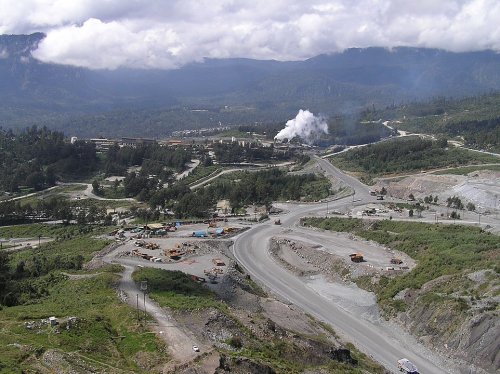- Amount demanded : n/a (notice of dispute sent only)
- Outcome : Mine reopened under undisclosed agreement
- Treaty invoked : Australia - Papua New Guinea BIT
- Sector : Mining
- Issue : Environment, human rights
by Mining Watch (edited by bilaterals.org)
Barrick started negotiating for a 20-year renewal of the Porgera mine permit in June 2017. But even after the mine’s existing 30-year permit expired in August of 2019, the Papua New Guinea (PNG) government stuck with its decision not to grant Barrick a permit renewal, citing environmental impacts and other legacy issues.
Barrick has been a leading partner in the Porgera Joint Venture mine for 14 years, during which severe environmental impacts, including riverine tailings disposal, have continued to characterize the operations, and the social “legacy issues,” including brutal human rights abuses committed by the mine’s private and public security forces, have deeply angered the local indigenous landowners.
In July 2020, Barrick initiated international arbitration, but the PNG government maintained its fundamental right to determine whether or not Barrick should be granted extended access to the lucrative ore body.
But in April 2021, referring repeatedly to legal threats by Barrick Gold Corp., Prime Minister James Marape of PNG released a statement, announcing that his government would sign an agreement with the company to reopen the Porgera gold mine.
“It seems that the legal pressure Barrick has maintained on the COVID-19-ravished state has finally worn down the resolve of the PNG government to chart a course for the mine without Barrick. It will be important to see what kind of deal Barrick has offered local landowners, as most have been adamant that they want to see the back of this controversial company. Our partners, in particular, want to know that human rights claims for victims of violence by mine security will finally be dealt with equitably.”
Catherine Coumans, MiningWatch Canada
Last update : May 2021
Read more :



